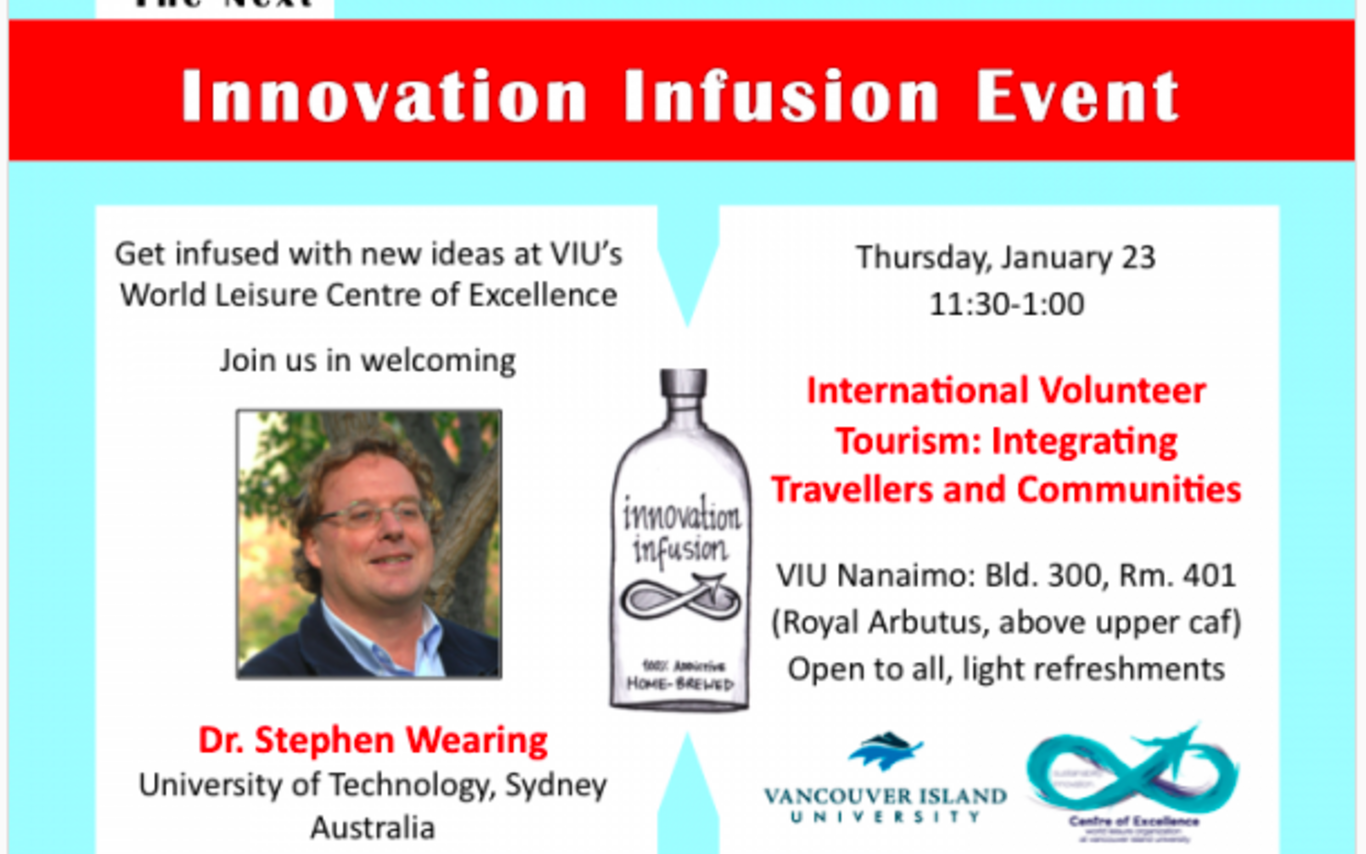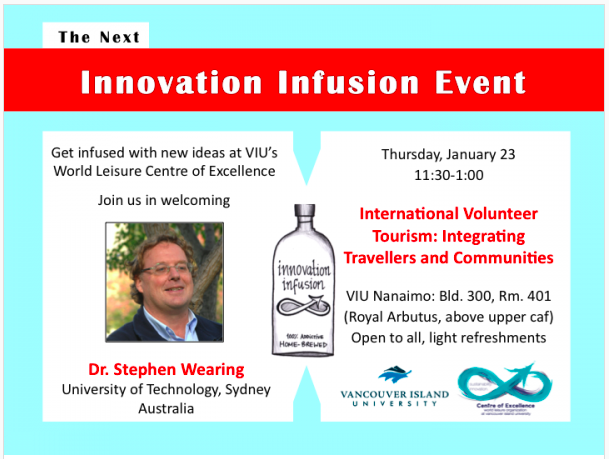By Amy Li and Michele Greene
After spending nearly four days on a field trip in Tofino and Ucluelet with our class and Stephen Wearing as a part of SLM 604: Influencing Change Towards Sustainability, we gathered above the VIU cafeteria to hear Stephen share his experiences and ideas about international volunteer tourism.
The title of the lecture was “Cradle to Grave” referring to a full circle attitude towards volunteer tourism where all aspects of it were handled together. As Stephen told us, this is changing and thus, his critique. Of late, volunteer tourism has been separated into its component parts and four operators handle the operations of travelling to the destination, onsite, travelling home, and recollecting the experience. This change has made volunteer tourism go from “cradle to grave” to segregation. Wearing stated that the separation of tourist, process, and destination can have a damaging effect on volunteer tourism. Whereas, it was once seen as a trip about volunteering, this segregation of components changes it to a trip that has one of its components about volunteering. Tourist space now serves the marketing purpose of tour operators rather than the destination, community, or environment. The segregation of the travel process, Wearing noted, doesn’t bring better results. To make his point, Wearing looked to the porter business in Nepal and the idea that social construction depicts the locals negatively and inferior. Wearing suggests we deconstruct that idea and ask what volunteer tourism can contribute for porters. Further, it is important to deconstruct or the tourism industry won’t know what it needs to do. What is suggested is international volunteer guidelines, decommodification of volunteer tourism, and a return to “cradle to grave” style volunteer tourism.
Stephen’s talk linked to sustainability with respect to volunteer tourism and its sustainability as a “cradle to grave” operation. Moreover, well run, ethical volunteer tourism can help with sustainability of the community in which the volunteers visit. Innovation can be seen in the idea of placing guidelines around volunteer tourism.
Additionally, volunteer tourists often can have a multitude of motivations, such as leisure seeking or self-development motivations. Many volunteer tourists may be simultaneously prompted by opportunities to learn and enrich oneself, to enjoy the feeling of being part of a team, or to express their individuality and accomplishment through engaging in volunteer work. Conversely, there are also some critical perspectives of volunteer tourism, such as unskilled volunteers, that can actually impede development projects. This can produce unsatisfactory work and many volunteer tourism programs do not encourage critical reflection about poverty and global inequality and can encourage simplified notions of development based upon ‘a western superiority ideology’, which means that many volunteer tourism activities organized by western nations have a negative impact on tourism development in host communities
We’ve seen how media can be pivotal in perpetuating images and myths and, again, we see it in this context. The media portrays destinations to potential customers and commercial providers use economic efficiency and economic division thereby segregating the processes involved in volunteer tourism. We have seen how important it is to not lean too heavily on one pillar of sustainability, at the cost of the others.
After listening to this lecture, we wonder what other processes have been deconstructed to their own detriment and whether they can be salvaged? Is there anyone else out there looking with a critical eye at other processes as specific as volunteer tourism?
We see this topic as important to Sustainable Leisure Management because it relates to tourism, which is a leisure activity. Volunteer tourism can help sustain communities and strengthening this form of tourism can help strengthen those communities.

